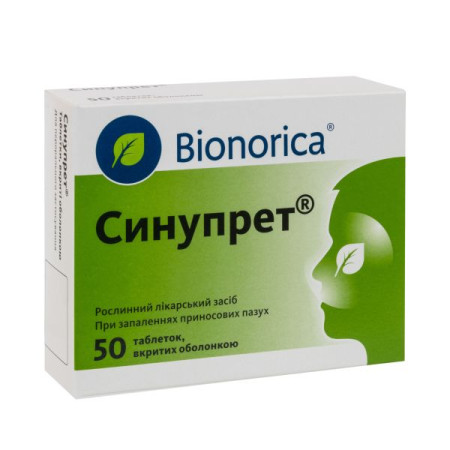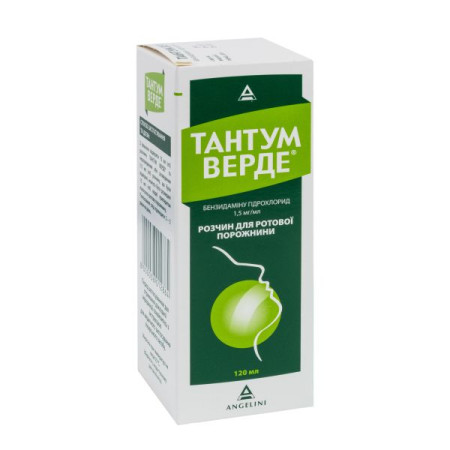Rimantadine-Darnitsa tablets 50 mg No. 20

Instructions Rimantadine-Darnitsa tablets 50 mg No. 20
Composition
active ingredient: rimantadine;
1 tablet contains rimantadine hydrochloride 50 mg;
Excipients: lactose monohydrate, corn starch, povidone, colloidal anhydrous silicon dioxide, magnesium stearate.
Dosage form
Pills.
Main physicochemical properties: tablets of white or white with a yellowish tint, flat-cylindrical shape, with a bevel and a score.
Pharmacotherapeutic group
Antiviral agents for systemic use. Cyclic amines.
ATX code J05A C02.
Pharmacological properties
Pharmacodynamics.
Rimantadine hydrochloride is a derivative of amantadine, has a pronounced antiviral activity. It is effective against various influenza A viruses, and also exhibits an antitoxic effect in influenza caused by type B viruses. Rimantadine inhibits virus replication in the early stages of the cycle by disrupting the formation of the viral envelope. Genetic experiments have shown that a specific protein of the M2 gene of the virion is of great importance in the antiviral action of rimantadine against influenza A virus. In vitro, rimantadine inhibits the replication of all three antigenic subtypes (H1N1, H2N2, H3N3) of the influenza virus identified in humans. Rimantadine does not affect the immunogenic properties of the inactivated influenza A vaccine.
Rimantadine-Darnitsa is also effective against arboviruses, which are the causative agents of tick-borne encephalitis.
Pharmacokinetics.
After single and multiple administration of the drug by patients of different age groups, no correlation has been established between the concentration of rimantadine in blood plasma and its antiviral activity.
After oral administration, the drug is almost completely absorbed. Absorption is slow. Plasma protein binding is about 40%. Volume of distribution: in adults - 17-25 l/kg, in children - 289 l/kg. The concentration in nasal secretion is 50% higher than in blood plasma. The maximum concentration of the active substance in blood plasma at a dose of 100 mg 1 time per day is 181 ng/ml, at 100 mg 2 times per day - 416 ng/ml.
Metabolized in the liver. The half-life is 24-36 hours. 75-85% of the dose is excreted by the kidneys, mainly as metabolites, 15% - unchanged.
In chronic renal failure, the half-life increases by 2 times. In people with renal failure and in the elderly, the concentration of the active substance may increase to a toxic level.
For patients with chronic liver disease, in particular with compensated cirrhosis, a dose reduction of the drug is not required, since the pharmacokinetics of a single dose of 200 mg do not differ significantly from that in a healthy person. However, in patients with severe liver dysfunction, when using a dose of 200 mg, the AUC value is 3 times higher, the half-life is 2 times longer, and the clearance is 50% lower compared to liver function indicators in healthy adults.
The pharmacokinetic profile of rimantadine in children corresponds to that in healthy adults.
Indication
Early treatment of disease caused by influenza A viruses in adults and children aged 10 years and older.
Prevention of influenza A during an epidemic in adults and children aged 10 years and older.
Contraindication
Hypersensitivity to rimantadine, adamantane derivatives or to any of the excipients of the drug.
Acute and chronic liver and kidney diseases.
Thyrotoxicosis.
Interaction with other medicinal products and other types of interactions
Urine alkalizing agents (acetazolamide, sodium bicarbonate), cimetidine, increase the concentration of rimantadine in plasma.
Urine acidifying agents (ammonium chloride, ascorbic acid), paracetamol, acetylsalicylic acid reduce the effectiveness of rimantadine.
Rimantadine weakens the effectiveness of antiepileptic drugs and enhances the stimulating effect of caffeine.
During the treatment period, you should refrain from drinking beverages containing alcohol, as this may cause undesirable reactions from the central nervous system.
Application features
The maximum therapeutic effect is achieved when the drug is used in the first 2 days from the onset of the disease.
Rimantadine is prescribed with caution to patients with gastrointestinal diseases, liver dysfunction, severe heart disease and heart rhythm disorders, and the elderly. In these cases, a dose reduction of the drug is recommended.
In the case of a history of epilepsy and anticonvulsant therapy, the risk of developing an epileptic seizure increases when using rimantadine. In this case, the dose of the drug should be reduced to 100 mg per day. If a seizure develops, the drug should be discontinued.
The emergence of drug-resistant viruses is possible.
During treatment, you should refrain from drinking alcoholic beverages, as this may cause undesirable side effects on the central nervous system.
Rimantadine-Darnitsa contains lactose, therefore patients with rare hereditary forms of galactose intolerance, lactase deficiency or glucose-galactose malabsorption syndrome should not use the medicine.
Use during pregnancy or breastfeeding
Rimantadine-Darnitsa should not be used during pregnancy. If necessary, discontinue breastfeeding.
Ability to influence reaction speed when driving vehicles or other mechanisms
When using the drug, you should refrain from driving vehicles and working with potentially dangerous mechanisms.
Method of administration and doses
Take the tablets orally after meals, with water.
The drug should be started as early as possible, immediately after the first symptoms of influenza appear. The therapeutic effect is more pronounced if the drug is started within the first 48 hours after the first symptoms of influenza appear.
Treatment of influenza: adults and children over 10 years of age: 100 mg (2 tablets) 2 times a day.
Before using the medicine on children, be sure to consult a doctor.
Elderly patients (over 65 years old) – 100 mg (2 tablets) once a day.
The duration of the treatment course is 5 days.
Flu prevention: adults and children aged 10 years and older, 100 mg (2 tablets) 2 times a day.
Elderly patients or those at high risk of complications – 100 mg (2 tablets) once a day.
The drug should be started at the beginning of the flu epidemic and used during the epidemic, but not longer than 2 weeks.
Children
Rimantadine-Darnitsa should be used in children over 10 years of age.
Overdose
In cases of overdose, symptomatic therapy is used to support vital body functions.
There is information about a case of poisoning with a chemical analogue - amantadine.
Symptoms: agitation, hallucinations, heart rhythm disturbances, fever, chills, sweating, arrhythmia, hypoesthesia, increased lacrimation, dysphagia, constipation, increased urination, stomatitis, eye pain.
Treatment: drug withdrawal, gastric lavage, intravenous administration of physostigmine, children and adults - initial dose of 0.5 mg, if necessary, repeat the administration, but not more than 2 mg per 1 hour. Rimantadine and amantadine are not removed by hemodialysis.
Adverse reactions
Usually, side effects disappear after you stop taking the medicine.
From the sensory organs: change/loss of taste, parosmia.
From the side of the organs of hearing and vestibular apparatus: noise/ringing in the ears.
From the respiratory system, chest organs and mediastinum: cough, dyspnea (shortness of breath), bronchospasm.
Gastrointestinal: dyspepsia, nausea, vomiting, dry mouth, abdominal pain, diarrhea, indigestion, anorexia.
Nervous system: headache, dizziness, tremor, ataxia (impaired coordination of movements), hyperkinesia (spontaneous movements), convulsions, insomnia, excessive fatigue, drowsiness, impaired concentration, confusion, increased excitement, nervousness, anxiety, depression, euphoria, hallucinations.
From the cardiovascular system: palpitations, tachycardia, arterial hypertension, cerebrovascular disorders, heart failure, edema, cardiac conduction disorders (blockade), syncope, elderly patients with arterial hypertension have an increased risk of developing hemorrhagic stroke.
Immune system disorders: urticaria.
Skin and subcutaneous tissue disorders: skin rash, itching, pallor of the skin.
Others: galactorrhea, exacerbation of concomitant chronic diseases, asthenia (weakness).
Expiration date
3 years.
Do not use the medicine after the expiry date stated on the packaging.
Storage conditions
Store out of the reach of children in the original packaging at a temperature not exceeding 25 °C.
Packaging
10 tablets in a contour blister pack; 2 contour blister packs in a pack.
Vacation category
Without a prescription.
Producer
PrJSC "Pharmaceutical Company "Darnitsa".
Location of the manufacturer and its business address.
Ukraine, 02093, Kyiv, Boryspilska St., 13.
There are no reviews for this product.
There are no reviews for this product, be the first to leave your review.
No questions about this product, be the first and ask your question.













